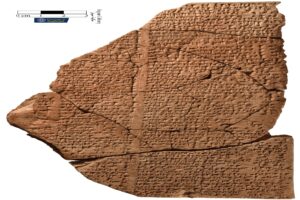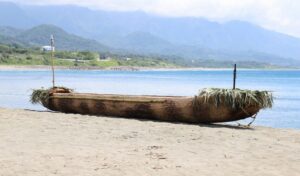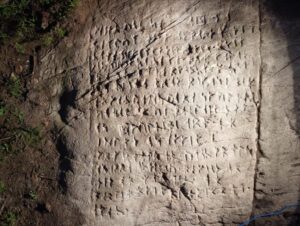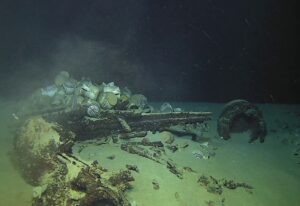Archaeologists have uncovered the grave of a 3,000-year-old charioteer in the Askizky region of Siberia. It is the first discovery to show that people used horse-drawn chariots in the region.
The team had been excavating the area because of plans to widen local railway lines. The square tomb is approximately 3,000 years old, and the skeleton was buried with a bronze knife and bronze jewelry.

Photo: IAET SB RAS
A charioteer’s hook
The skeleton they found has an unusual hooked metal rod across the waist. Charioteers would have attached the hooked rod to their waist belts.
Researchers have found similar items in Chinese and Mongolian graves. Charioteers tied the reins of the horses to their hooked waist belts, leaving their hands free.
Archaeologists have also found similar hooked belts in Russia, but their purpose was previously unknown. Recently, the role of the belts became apparent when researchers found multiple Bronze Age charioteer burial sites in China. Alongside skeletons with similar hooked waist belts, they discovered the remains of horses and chariots.

Photo: IAET SB RAS
Changing our perception of Siberia
Though there were no horses or chariots in this newly discovered burial, researchers think that these belts are a symbolic substitute for a chariot. They signify the position the individual held in society.
The relatively elaborate graves suggest that charioteers were well-regarded within the community. Archaeologists have split the graves into three groups that relate to three civilizations. The earliest show the transition between the Karasuk and Lugav cultures. The next group, which includes that of the charioteer, show Lugav culture, and the later graves show a shift to the Tagar culture.
The Karasuk civilization lasted until the 11th century BC, the Lugav culture until the 9th century BC, and the Tagar culture began in the 8th century during the shift from the Bronze Age to the Iron Age.






